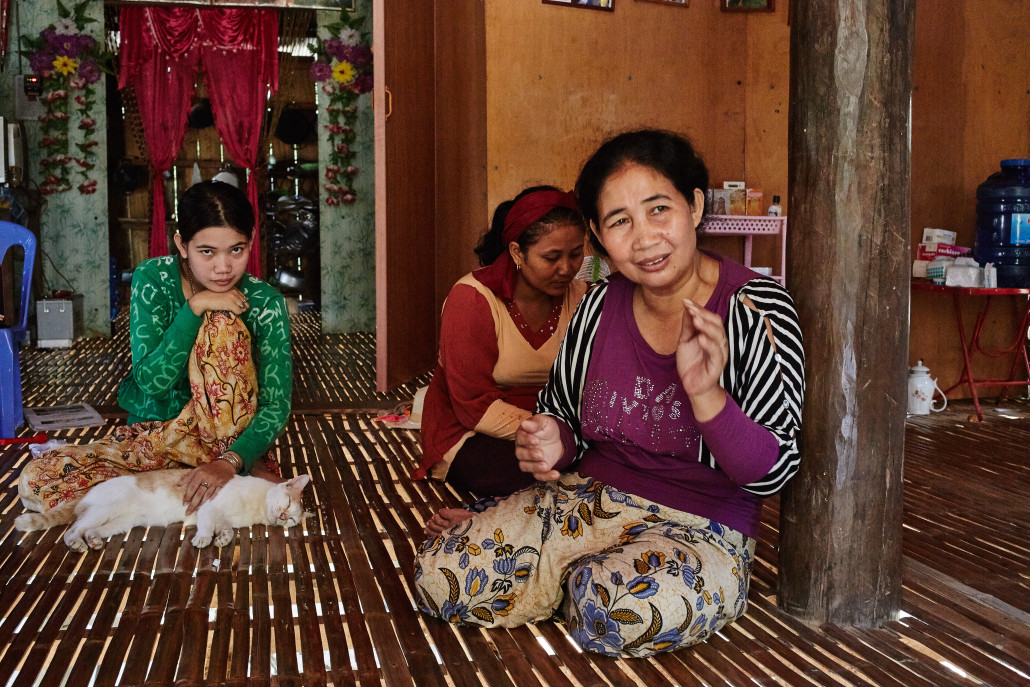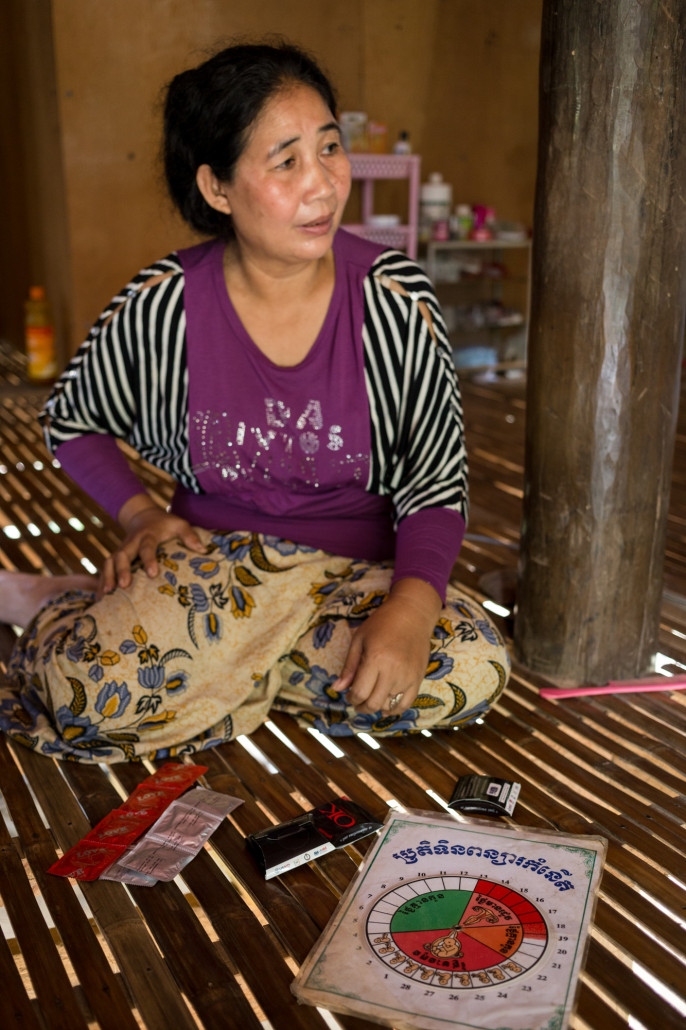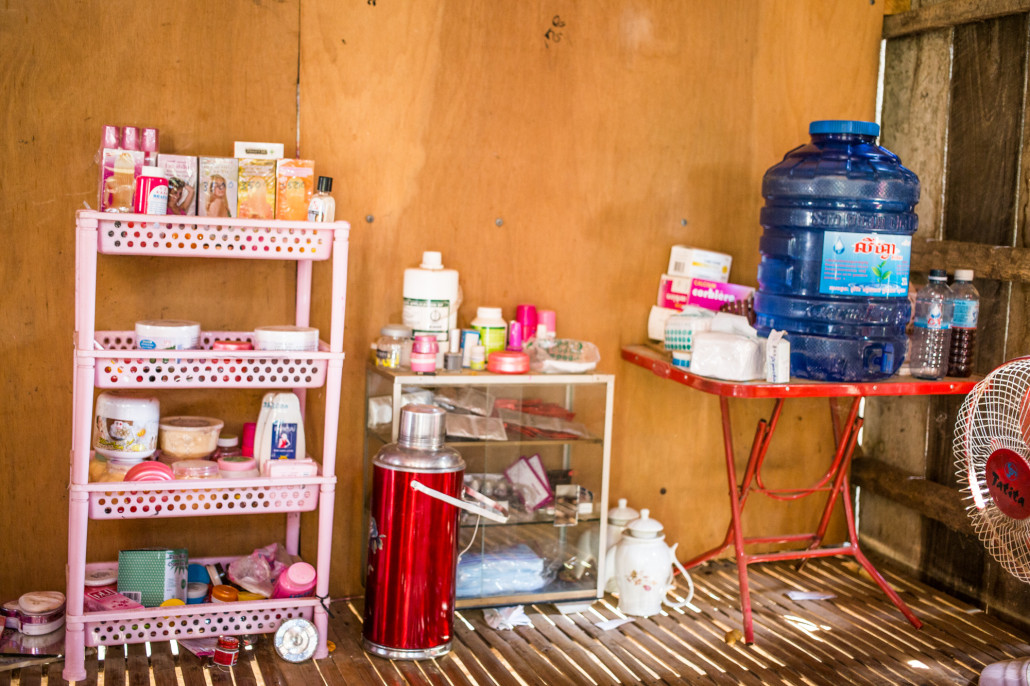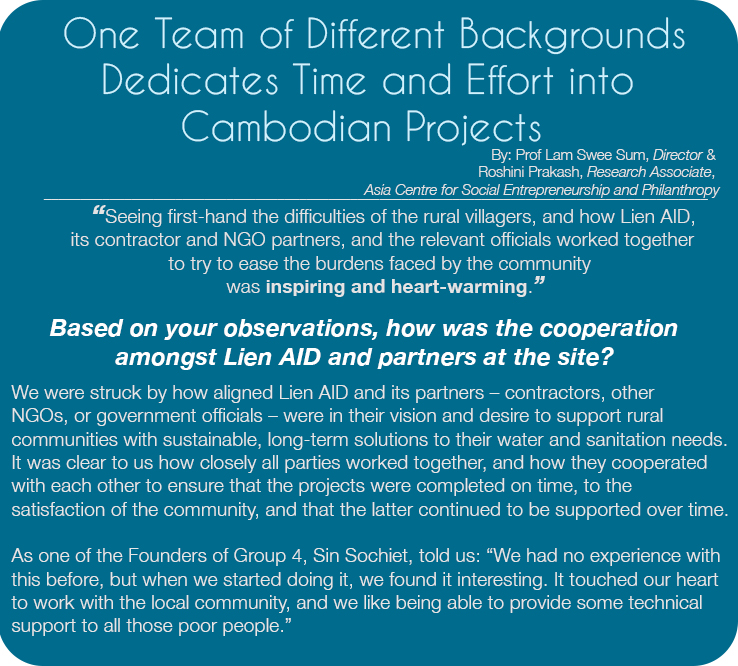Updates from the field: Community Water Enterprise projects in Cambodia
Exploring new sites in Kratie Province
We shared plans in May on exploring new sites for Community Water Enterprise (CWE) projects in Cambodia. Our team conducted feasibility studies in nine communes within Kratie province during end June and start of July, and identified four sites for further needs assessment.
Through the feasibility studies and discussions with the commune councils, we found that villagers in Kratie province face the risk of exposure to arsenic-contaminated water and low water sanitation and hygiene practices. As piped water supply is only available in more populated areas along the river, villagers who live in remote locations face increasing difficulties in accessing clean water.
Recent developments for ongoing CWE projects
In addition to the upcoming intervention in Kratie province, we are also picking up on the progress of ongoing CWE projects in Cambodia. In the past two months, our team set up water distribution points and selected local water entrepreneurs and water promoters over four sites in Prey Veng and Kampong Chhnang provinces.
Water Management Committees (WMCs) and water entrepreneurs in Prey Veng province attended training on effective management and monitoring of water distribution systems while water promoters were trained on ways to increase awareness and understanding of clean water benefits among the villagers.

Water promoters in Prey Veng province attend training (left); WMC members and water entrepreneurs attend CWE training (right).
Plans are afoot for eight CWE projects across Kampong Thom and Siem Reap provinces. With WMCs established and commune council meetings underway, the construction of water treatment facilities and capacity trainings are expected to kick off in the coming months.

Meeting with the commune council in Koul commune, Kampong Thom province (left); Current water source for villagers in Msar Krang commune, Kampong Thom province (right).
Join us now to work together towards a common vision of better water governance and a future where sustainable clean water access is available to everyone. You can also learn more about our work in Cambodia here.





















